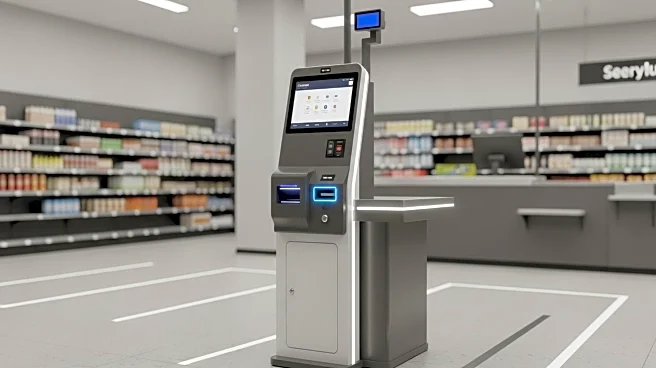What's Happening?
Aldi has refuted reports suggesting it plans to remove self-checkout kiosks from its stores. The discount grocer emphasized its commitment to maintaining self-checkout options at many locations, aiming to enhance customer experience and operational efficiency. Despite claims from Axios Chicago and discussions on Reddit, Aldi clarified that adjustments to checkout formats are part of ongoing efforts to innovate based on customer feedback. A poll conducted by Axios Chicago revealed that 54% of shoppers prefer self-checkout over traditional methods. The move to replace human cashiers with machines has been met with mixed reactions, with some retailers like Dollar General opting to eliminate self-checkout in favor of assisted checkout to foster personalized in-store experiences.
Why It's Important?
The decision by Aldi to retain self-checkout kiosks reflects broader trends in the retail industry where automation is increasingly used to streamline operations and reduce costs. This approach can significantly impact labor dynamics, potentially reducing cashier jobs while increasing demand for tech-savvy roles. The preference for self-checkout among consumers suggests a shift towards convenience and speed in shopping experiences. However, the mixed results and theft concerns associated with self-checkout highlight challenges that retailers must address to balance efficiency with security and customer satisfaction. The ongoing debate over self-checkout underscores the evolving nature of retail operations and consumer expectations.
What's Next?
Retailers are likely to continue experimenting with checkout technologies to find the optimal balance between automation and human interaction. Aldi's approach may influence other grocers to reassess their checkout strategies, especially as theft concerns persist. Legislative actions, such as those in California requiring staffed checkout lanes alongside self-checkout, may become more common, impacting how retailers structure their operations. As technology advances, innovations like AI-powered smart carts could offer new solutions to enhance security and efficiency in self-checkout systems.
Beyond the Headlines
The ethical implications of replacing human cashiers with machines raise questions about the future of employment in the retail sector. As automation becomes more prevalent, retailers must consider the social impact of reduced human interaction and potential job losses. Additionally, the cultural shift towards self-service reflects changing consumer attitudes towards privacy and personal engagement in shopping environments. Long-term, these developments could redefine the retail landscape, influencing how stores are designed and operated.









